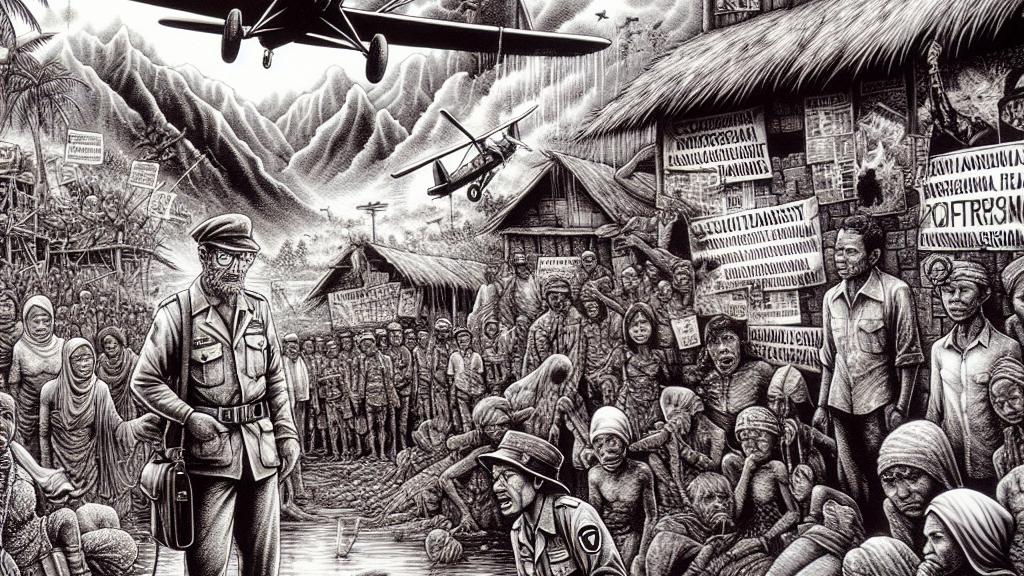Freedom on the Horizon: Papua Rebels Set to Release Kiwi Pilot After Year-Long Captivity!
Overview
- A separatist group in Papua, Indonesia, has announced plans to release New Zealand pilot Phillip Mehrtens after more than a year in captivity.
- Mehrtens, kidnapped on February 7, 2023, is expected to be freed for humanitarian reasons, highlighting the urgency for his safe return.
- This situation underscores the escalating conflict in Papua, characterized by tensions over independence and human rights violations.

The Kidnapping Incident
On February 7, 2023, Phillip Mehrtens, a New Zealand pilot, was kidnapped by the West Papua National Liberation Army (TPNPB) shortly after landing a small aircraft in Nduga, Indonesia. This region is known for its rugged terrain and has been a historical stronghold for pro-independence movements. The TPNPB aimed to leverage Mehrtens' captivity to draw international attention to their fight against Indonesian rule, which they argue oppresses the local Papuan population. This act is part of a broader narrative in Papua, where the indigenous people have long claimed their right to self-determination against a backdrop of exploitation and violence. The insurgency has roots that trace back to Indonesia’s acquisition of the region following colonial rule, igniting decades of conflict that often sees innocent people caught in the crossfire.
Pathway to Release and Humanitarian Considerations
In a significant development, Egianus Kogoya, the commander overseeing Mehrtens' captivity, announced intentions to release the pilot, emphasizing humanitarian reasons for his decision. A spokesperson for the group indicated that this release could take up to two months, capturing the urgency of safe negotiations amidst a backdrop of rising tensions in Papua. New Zealand's government has been actively involved in advocating for Mehrtens’ safe return, highlighting the need for an international dialogue to address the long-standing grievances of the Papuan people. Throughout his captivity, Mehrtens appeared in several videos, urging for peaceful talks and negotiations, thereby elevating the visibility of the Papuan independence movement on the global stage.
The Complex Ongoing Conflict and Calls for Peace
The conflict in Papua is marked by a web of historical injustices, human rights violations, and ongoing violence. Since the 1960s, the Free Papua Movement has fought against what they consider the illegitimate control of Indonesia over their territory, resulting in significant casualties. Human rights organizations report rampant abuses, including extrajudicial killings and enforced disappearances, primarily perpetrated by military forces. The situation is compounded by local grievances over resource exploitation—Papua is rich in natural resources, yet impoverished communities remain disenfranchised. Recent failures in communication between the Indonesian government and separatist groups have prevented progress toward a peaceful resolution. The international community has called for renewed efforts to facilitate dialogues that honor the rights of Papuans and promote stability in the region, underscoring the critical need for a solution that balances the demands for independence with humanitarian considerations.

Loading...